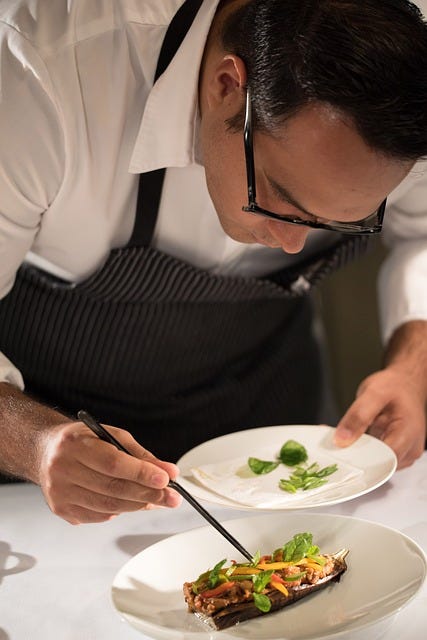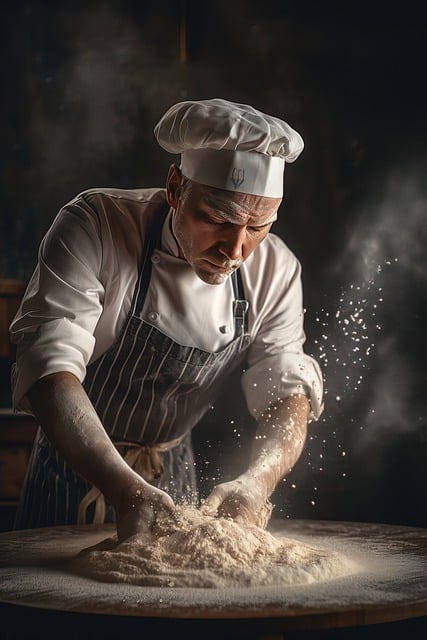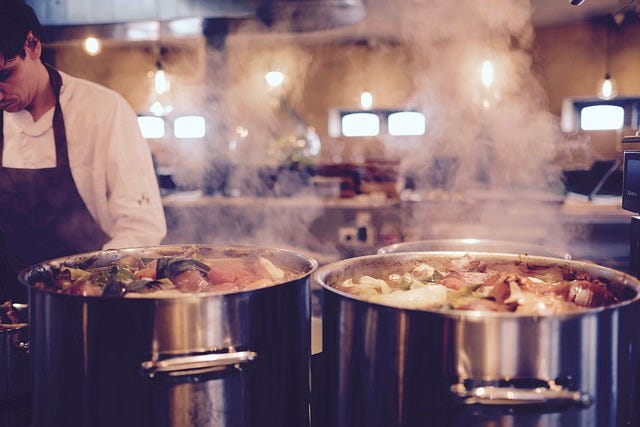As I discussed in my last article, chefs work a ton of hours, some chefs work close to a hundred hours a week and most work well over the forty-hour workweek that so many other professions enjoy. All of these hours can be very stressful on the individual themselves but can be exponentially hard if they have a family to take care of. If you’re going to work in the culinary industry you are going to have to take care of your mental health before it takes care of you.
The kitchen is a high-pressure world and chefs operate in very stressful environments where time is of the essence, and perfection is the standard. This often can conceal the hidden struggles faced by chefs in relation to their mental health. The fast-paced nature of the culinary industry can result in long hours, limited breaks, and little time for self-care.
Chefs are constantly facing pressure to meet high expectations. This absolutely creates a breeding ground for anxiety and burnout. The intensity of the kitchen culture, combined with the need to maintain creativity and consistency, can lead to a range of mental health challenges.
Burnout is one of the main mental health issues that chefs and kitchen staff can face, but what is burnout, what does it look like and what are some ways to remedy it?
Burnout is a psychological condition characterized by long-term exhaustion, cynicism, and reduced efficacy in one's work. Chefs often experience physical fatigue, emotional strain, and a loss of passion for their craft. Identifying the symptoms of burnout, such as chronic fatigue, irritability, and detachment from work, is crucial in addressing the issue.
Let’s take a look at what are some of the potential reasons that can lead chefs to experience burnout.
Several factors can contribute to burnout in the professional kitchen. Number one is the demanding work schedule and irregular hours that can disrupt sleep patterns, leading to chronic fatigue and compromised mental health. Additionally, the relentless pressure to consistently deliver exceptional dishes, coupled with the need for perfectionism, can create an immense burden on chefs. Furthermore, the high-stress environment, including time constraints, tight budgets, and customer demands, can exacerbate the risk of burnout.
It is imperative for chefs to create a healthy work-life balance. If you don’t have a plan to take the steps necessary to achieve this goal then you are setting yourself up for burnout. This can include setting boundaries, being able to schedule regular time off as well as prioritizing self-care activities outside of work. If your place of employment is making it very difficult to meet these goals then you should probably consider finding somewhere else to work. After all, it is just a job and your life and health should take top priority.
A lot of chefs spend so much time in the kitchen that they really don’t get a chance to talk to anybody outside of work, and non-kitchen people, or “civilians” as I call them don’t really understand what a chef’s life is like. However, it is important that chefs communicate with other chefs regularly, this can help you to feel like somebody understands what they go through on a daily basis. Having others to talk to also can help you to feel less isolated.
All too often in an attempt to cope with their stressful lives, chefs can fall into harmful coping mechanisms, such as substance abuse. The availability of alcohol and drugs within the culinary industry can further contribute to the development of unhealthy habits. Long hours, intense pressure, and the need to maintain high standards can drive individuals to rely on substances as a temporary escape, leading to a detrimental cycle of self-medication and addiction.
Despite the growing awareness surrounding mental health, chefs face unique barriers when it comes to seeking help. The macho culture and stigma associated with mental health challenges in the culinary world can discourage individuals from reaching out for support. The fear of being perceived as weak or incapable may prevent chefs from addressing their mental health concerns, further exacerbating the long-term impact on their well-being. Breaking down these barriers and promoting a culture of open dialogue and support is vital for addressing mental health among chefs.
It is becoming necessary for chefs to begin to reshape how we define success beyond the traditional notions of perfectionism and working an unrelenting schedule. Prioritizing self-care, setting realistic expectations, and celebrating the small victories can help combat stress in the kitchen. Finding joy in the creative aspects of cooking, experimenting with new ingredients and techniques, and maintaining a healthy lifestyle outside of work are all essential components of self-care.
It is important for all chefs to remember that even though being a master of the culinary arts is what fuels you and burns inside of you like a raging fire, you are not indestructible. You still need to take good care of yourself so you can live on to cook another day.








Brian, I felt that burnout! I think I told you that I briefly contemplated being a KM, but realized 60+ hours of work for like a $23K salary (back then, still worth peanuts today) was a nonstarter.
Also: I like the images! Are some form Dall E or Midjourney?